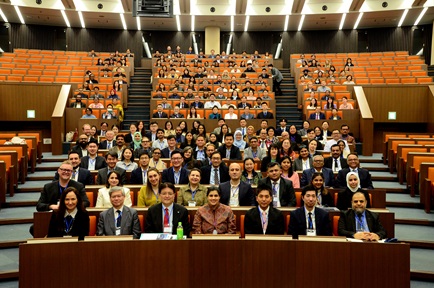Can the comfort zone encourage risk-taking?
Taking risks never feels comfortable, but it is unavoidable and necessary for anyone who aspires to achieve greater goals and for any society where innovation is essential for growth.
By Zou Xi

I started teaching at Nanyang Business School about two years ago. Every semester, a few students would ask for a day off from lecture because they have to attend to the HDB housing ballot and go choose their flat in person.
“What is the ballot all about? You are a university student. Why do you need to plan for a flat ownership now? Don’t you live in the dormitory or with your parents?’’ I asked.
It strikes me that, even for first-year university students, they seem to be very certain of what will come next. “Get the education credentials, secure a good job, accumulate CPF savings, meet a potential life partner, get in a queue to buy an HDB flat, pay for a housing loan, get married, and move into the flat.”
I joked about this with a colleague who was from Hong Kong and who has been teaching in Singapore for more than 20 years. In her words, this certainty is a proven path for the young people in Singapore. She had countless graduates forgoing aspiration to get a masters degree or opportunities to start their own business, because the risk of giving up this certain path to have a good life is just too daunting.
So, how could we motivate people to take more risks Singapore? Taking risks never feels comfortable, but it is unavoidable and necessary for anyone who aspires to achieve greater goals and for any society where innovation is essential for growth. To address this question, some counterintuitive findings in social psychology might be informative.
While we typically assume that Americans are more risk-seeking than Chinese, researchers have found that Chinese people, compared to Americans, take more risks in financial decisions because they have more financial support from family members. In other words, a large number of family contacts “cushions” the downside of losing in risky investments. This cushion effect has also been found in the context of online communities, where people who have more strong relationships with other community members are more likely to make risky decisions. In this sense, security and sufficient support are essential in enabling people to take more risks. Instead of framing the current prosperity as ‘’comfort zone’’, we could see the current prosperity as a supportive cushion. It is okay to take more risks, as the downside of losing is “cushioned”.
Another common assumed idea is that risk aversion is often manifested by a tendency to stick with the status quo and not try new things. However, my collaborators and I found that inducing people to think of the past nostalgically can reduce the human tendency of avoiding risks and provide a psychological cushion that encourages people to take more risks.
To be more specific, although many people doubt whether it is healthy to dwell into the past, research conducted Prof. Wildschut and Prof. Sedikides from University of Southampton has shown that nostalgia is a predominantly positive social emotion. Nostalgia usually involves thinking about relationships with ‘’close others’’, such as family members, romantic partners, and friends. The same research also suggests that when people write about their nostalgic thoughts, they feel more socially connected, loved, and protected. In this sense, our research suggests that nostalgia creates a psychological cushion that facilitates risk-taking. Nostalgia would increase people’s perceived family support, serve as a psychological cushion, and result in increased financial risk-taking.
For example, in one study, my collaborators and I recruited a sample of business owners in the United States. We asked how frequently they experienced nostalgia and what their investment strategies were. We found that business owners who experienced nostalgia more frequently were more likely to run their business using more risky strategies, such as taking bold, wide-ranging actions to achieve the company’s objectives and preferred high-risk projects with chances of high returns.
As a psychologist, I understand that people are risk averse and thus I should not be surprised by what my students told me. After all, it is citizens who strive to have a good life that builds a prosperous society. But I hope that the past success and the current security that Singapore has achieved in the last five decades will serve as a strong cushion that enables the young people to take risks and be bounced back quickly when faced with challenges.
About the author
Zou Xi is an associate professor at Nanyang Business School at NTU. The research mentioned in this article is co-authored with Margaret Lee (University of California, Berkeley), Tim Wildschut and Constantine Sedikides (University of Southampton).
This article was published in Today on 22 August 2019.







